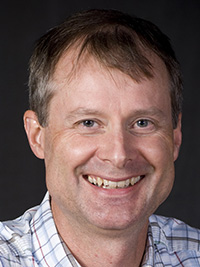Legal Skills 411 – Slides (Research, technical presentation and plagiarism)
LS 411 Research and Technical Presentation
LS 411 Research and Technical Presentation
Introduction
In a conversation about poetry, US Supreme Court Justice Elena Kagan says that she doesn’t read it much.
Besides being purposefully opaque, she muses, it’s as though, ‘the author is trying too hard to make you not understand something. And you have to work too hard to figure it out.’ Poetry, Justice Kagan goes on to say, is a kind of fancy-schmancy elevated language, which, ‘thinks too well of itself.’ (more…)
The problem
Something students, in fact all writers, perhaps especially lawyers, often struggle with is the flow of their text. We work with arguments, ideas and concepts that develop as we systematically work our way through the material. As we think about and write, we are continuously building a mental reference framework which guides us through the complex maize we call law and, more specifically, our argument. We might not always be aware thereof, but this framework makes our thought and writing much clearer to us than to, say, a reader of our work. Our poor readers, who are not privy to this mental goldmine, need to be taken by the hand and led through our writing to make sense of things. (more…)
From the International Law 341 consultations I have had so far it is clear that students are struggling to understand and formulate a literature review. Here are a few pointers that could assist you:
Consultation slots are quickly filling up so if you have any technical questions, do not hesitate to make use of our Facebook platform which you can access here.
Best of luck!
Chantelle Hough Louw
More has been said about the writing of lawyers and judges than of any other group, except of course, poets and novelists. The difference is that while the latter have usually been admired for their writing, the public has almost always damned lawyers and judges for theirs. If this state of affairs has changed in recent times, it is only in that many lawyers and judges have now joined the rest of the world in complaining about the quality of legal prose.
Read more here: http://www.legalwritingjournal.org/wp-content/uploads/2015/06/volume1.pdf
Criminal Law 171 slides of 13-05-2016
[Click on link to download]

Legal Skills 411 slides – technical presentation
[Click on link to download}
– Chantelle Golombick
 Folks:
Folks:
The posting below looks at writing itself as a thinking process and how this idea can be used in a variety of courses. It is by Neil Haave, associate professor of biology, University of Alberta, Augustana Campus, and is from the National Teaching and Learning Forum, Volume 25, Number 1, December 2015 2015.
It is #77 in a series of selected excerpts from the NT&LF reproduced here as part of our “Shared Mission Partnership.” NT&LF has a wealth of information on all aspects of teaching and learning. If you are not already a subscriber, you can check it out at [http://onlinelibrary.wiley.com/journal/10.1002/(ISSN)2166-3327 ] (more…)
SEMINAR: INTERDISCIPLINARY RESEARCH (LAW AND ECONOMICS) IN THE FIELD OF LABOUR
Hosted by the Department of Mercantile Law, Stellenbosch University
This event will include a presentation by Professor Simon Deakin (Cambridge University) and will provide delegates with an opportunity to participate in a general discussion and a question-and-answer session regarding interdisciplinary research in law and economics within the labour environment. (more…)
COLLOQUIUM ON EQUAL PAY
Hosted by the Department of Mercantile Law
Stellenbosch University
This event will examine equal pay for equal work or work of equal value from an economics and legal perspective. Speakers at the event will address the recent inclusion (through legislative amendments to the Employment Equity Act, 1998) of specific equal pay provisions in South African law, as well as provide an overview of applicable law, recent developments and general experience in this area of law in other jurisdictions. (more…)
Case No. CCT 74/14, Western Cape Division, Cape Town, 24 April 2011
Hearing date: 28 August 2014
Judgment date: 11 December 2014
Majority author: Froneman J
Vote: Unanimous
By Duncan Wild on 11 December 2014
This is a case seeking to expand the South African common law to recognise a claim for “wrongful life”, or what the applicant calls “wrongful suffering”. Historically, such claim have arisen where a medical professional is alleged to have failed to inform parents that there is a high risk that a foetus may be born with abnormalities, and had the parents been informed, they not have permitted the foetus to be born. The applicant sought to cast the claim as one for “wrongful suffering”, seeking to emphasise that it is not claim with the basis that it would have been better for the child not be born, but that in failing to give the accurate information, the physician caused the suffering of the child once it was born. At present neither of these claims exist in South African law, and the applicant sought to have such a claim recognised. (more…)